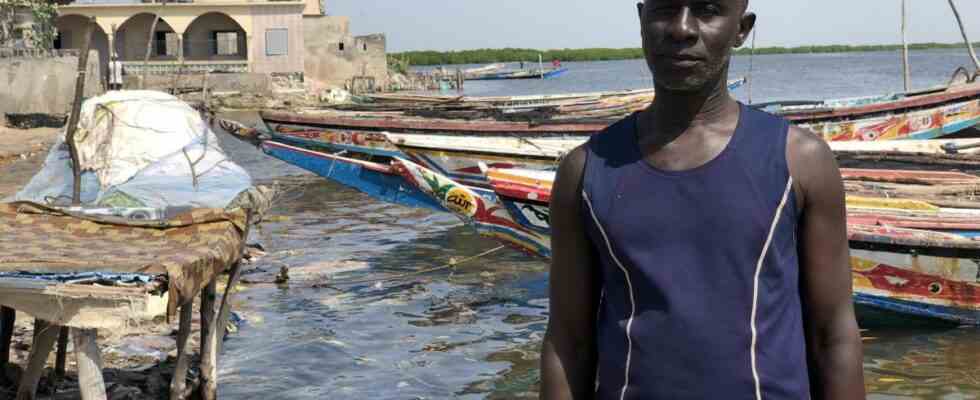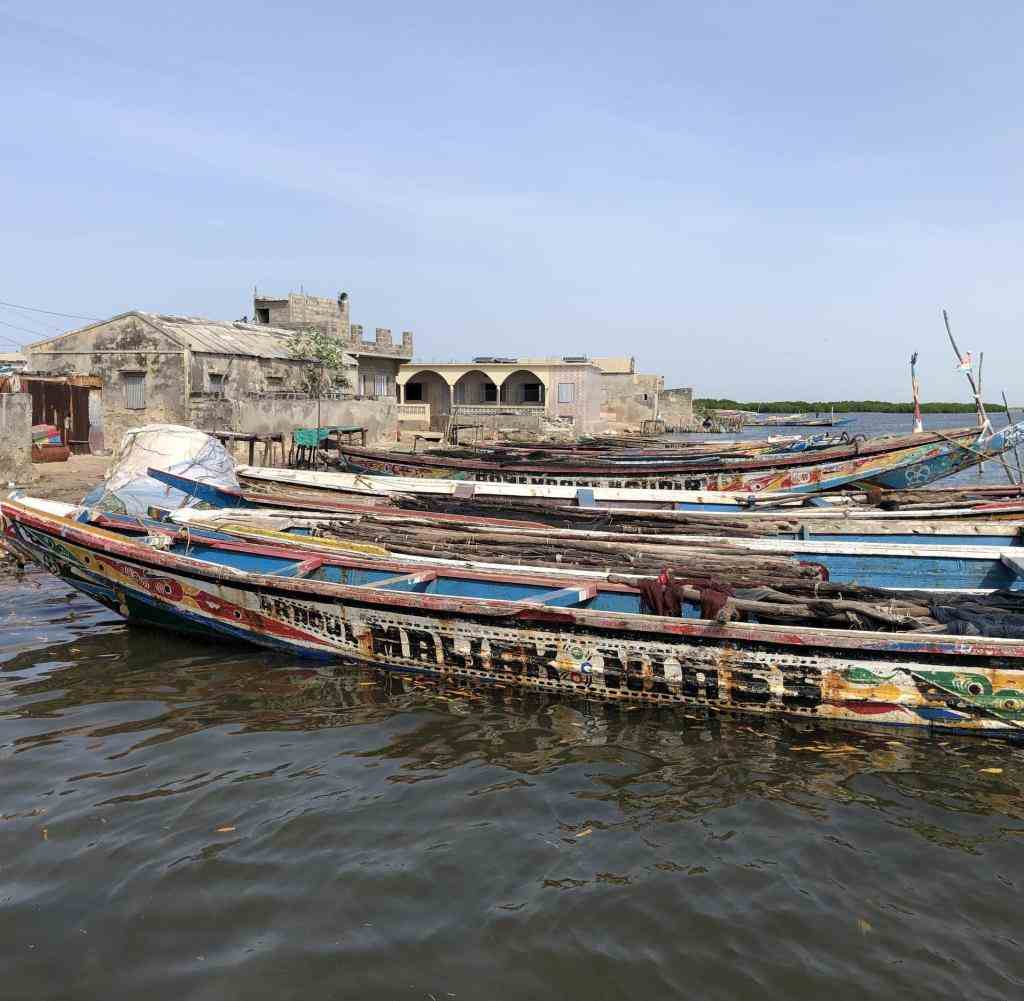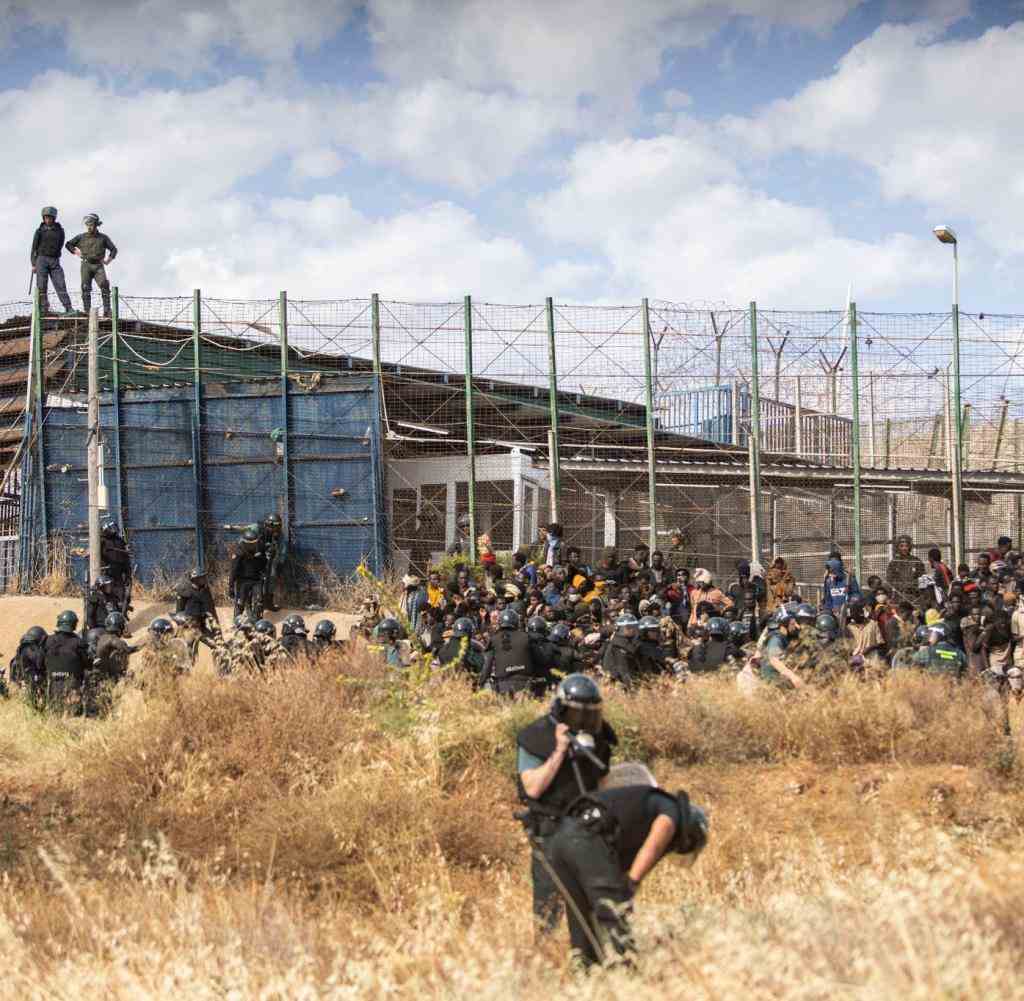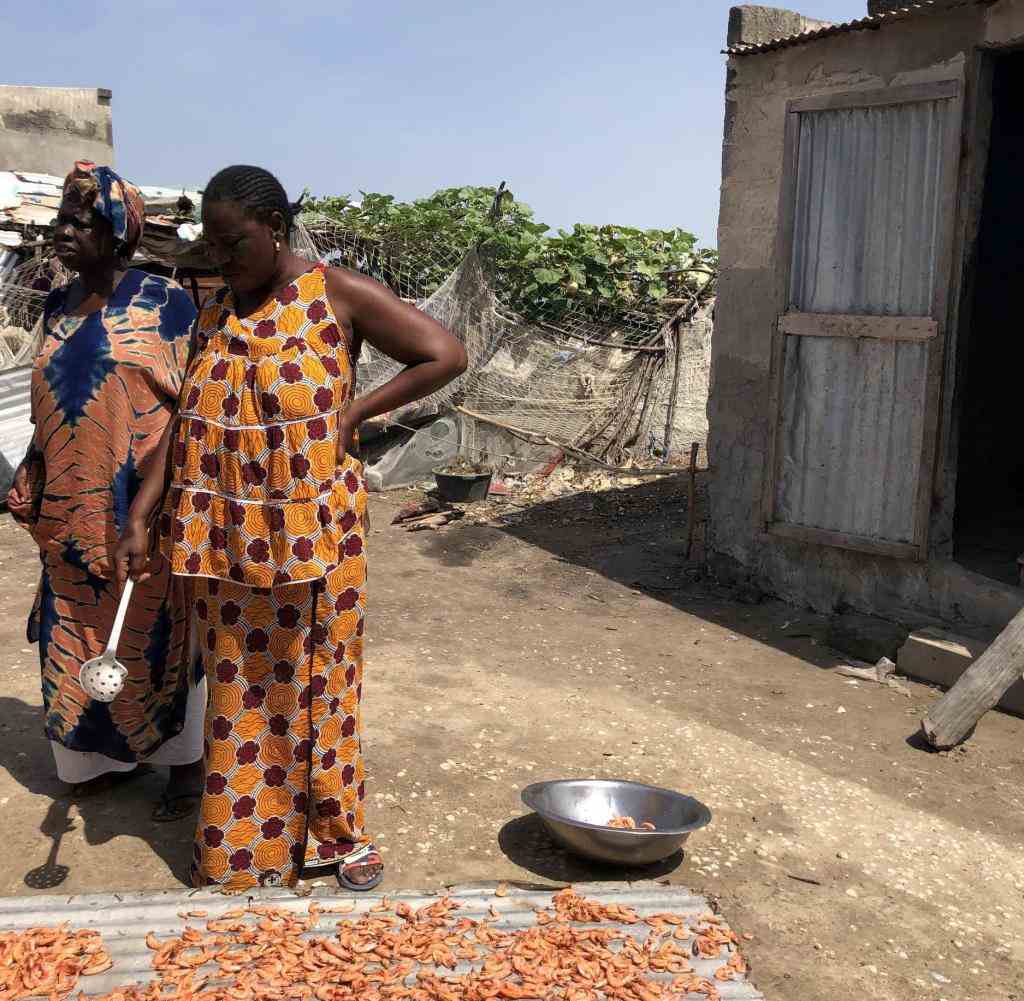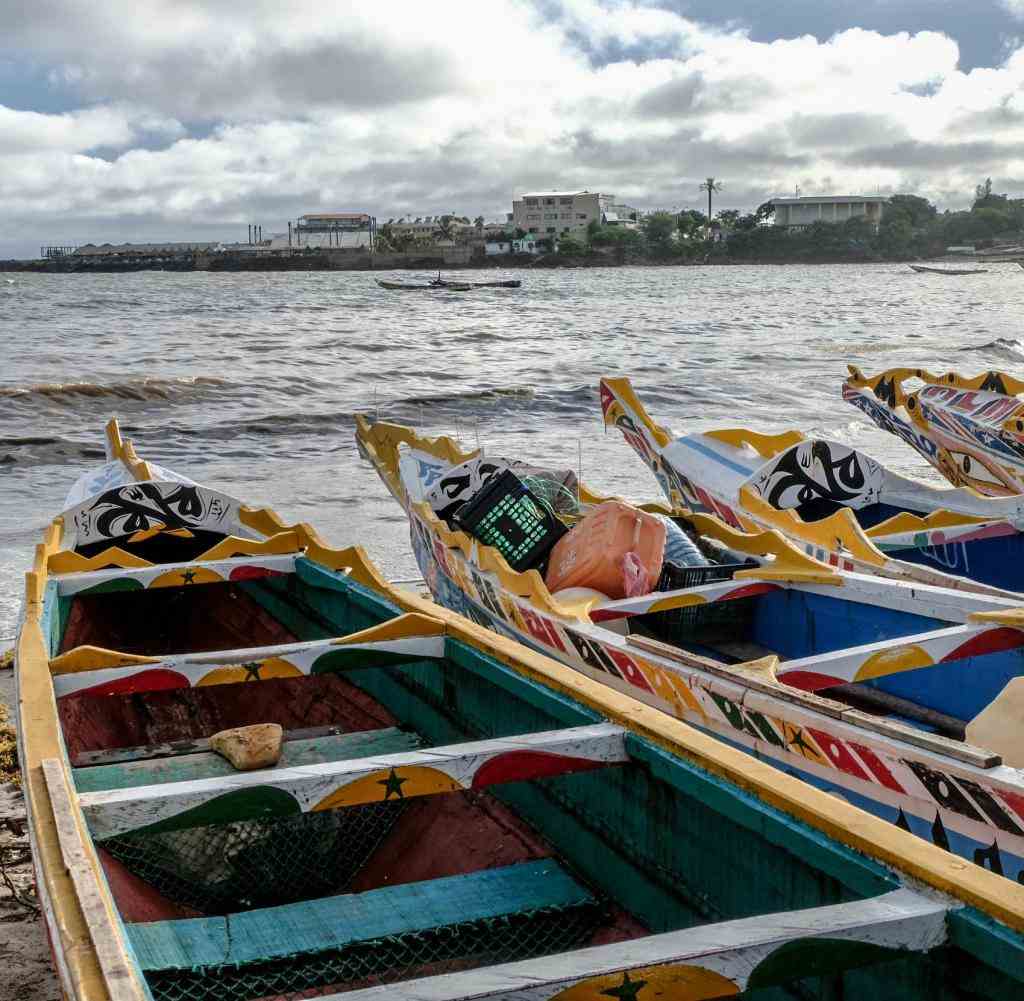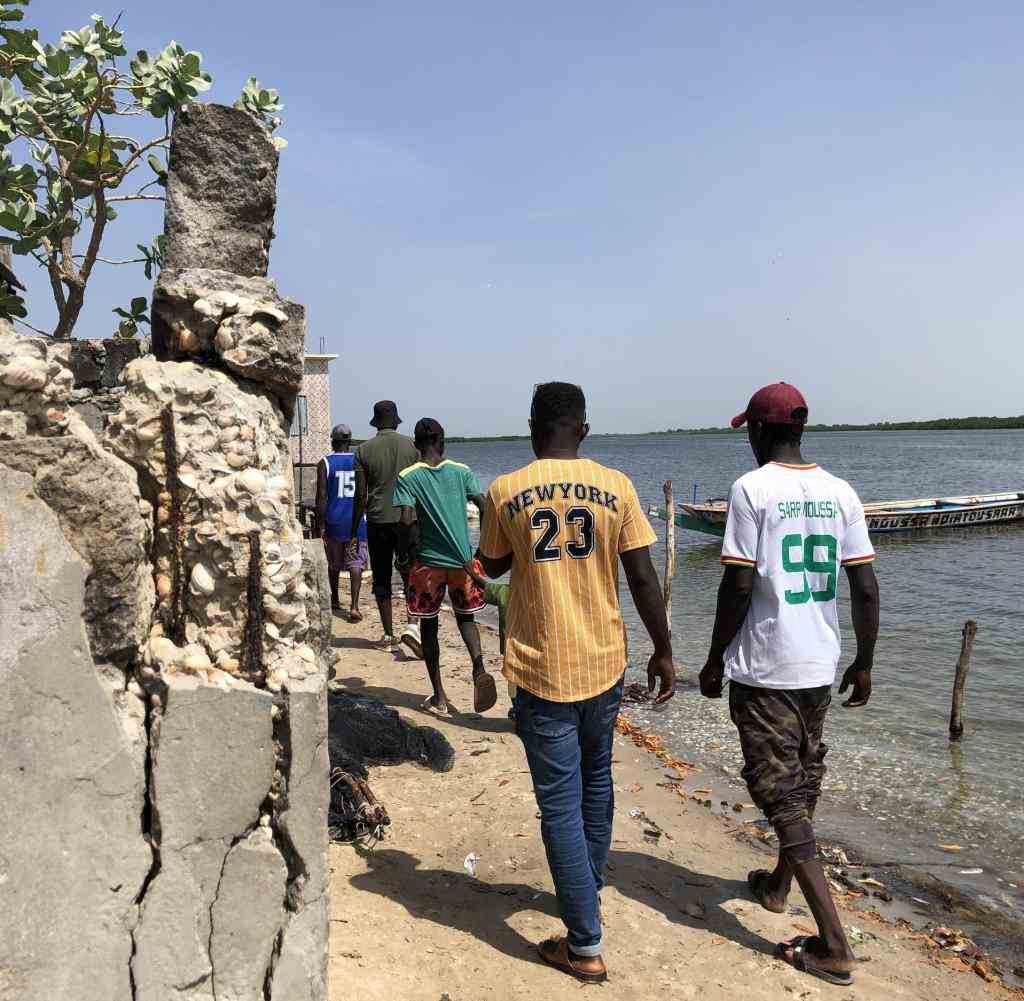Vhe has seen four people die up close, says Gana Sarr. In the refugee boat on the way from Morocco to Spain. Spontaneously collapsed on the open sea. The 51-year-old does not know whether it was heat stroke or thirst. All he remembers is that the Spanish coast guard towed the boat to a Spanish port and immediately took him to a refugee shelter upon arrival. 2006 was that.
Six weeks later, Sarr was deported. Back to Senegal, back to the remote island of Diamniadio with all its hopelessness. Gana Sarr is still there – and says: “If I get the chance to escape again, I’ll definitely try it a second time.”
Anyone who spends a little time on Diamniadio can understand why not only Gana Sarr, but also many other villagers just want to leave. Located in the delta of the great Saloum River amidst mangrove forests, the island could actually be a picturesque gem. There is a bird-watching resort just a few miles away, but life here is one of hardship.
There is no electricity in the half-ruined concrete houses, only the loudspeakers of the mosque are powered by a generator. Almost everyone in the village is a fisherman. They tell of the decline of their guild due to overfishing, ecosystem pollution and climate change – stresses that are cumulative and threaten to destroy Senegal’s centuries-old fishing tradition. And they talk about the hopelessness that makes migration to Europe the only way out for many small-scale fishermen.
Only the essentials: houses on Diamniadio
Source: Jörg Wimalasena
It’s a quiet day on Diamniadio. The catch of the day has been brought in and the brightly painted wooden boats – called pirogues – are resting on the island’s littered sandy beach. Three fishermen are repairing the hull of a boat with loud mallet blows.
Gana Sarr stands a few meters further on the island’s concrete jetty. Sarr is a slim man in a blue tank top who almost constantly chews on a piece of wood to brush his teeth – and whose age does not appear at first glance. Only the short gray stubble and the tired, haggard facial expression reveal how hard work as a fisherman ages people prematurely.
Going to sea with the small pirogues is the only source of income for many island residents
Source: Jörg Wimalasena
Sarr has been at sea since he was a child and tells how much the situation for small-scale fishermen has deteriorated in recent decades. It started as early as the 80s. Large boats from overseas have come to Senegal. “From Korea, France, Spain, Italy.” And they would have fished the waters off the coast empty.
Because of the dwindling fish stocks, the small boats now have to go farther and farther out onto the open sea. which is dangerous. “I know many who stayed at sea,” says Sarr. Capsized and drowned because the small pirogues are hardly suitable for the trip to the open sea.
The issue of overfishing has occupied Senegal for decades. Fish stocks are particularly rich and diverse off the coast of the West African country. For decades, the Senegalese government freely gave fishing licenses to investors from Europe and Asia, as well as wealthy local people. This is a catastrophe for the traditional small fishermen.
More than half a million Senegalese work directly or indirectly for the industry, for many fishing is the only possible source of income. For about ten years the government has tried to limit the exploitation of the coastal waters by no longer issuing new licenses and decreing fishing-free recreation periods, but this does little to alleviate the plight of coastal fishermen. “The big boats just come back afterwards,” says Sarr.
The fact that small-scale fishermen in the contested waters of West Africa lose out to larger boats and the fish processing industry is also due to the fact that they have hardly any processing and marketing opportunities to earn big money with their work. The infrastructural deficit is particularly evident on Diamniadio.
Since there is no electricity, the residents cannot operate cold storage rooms or fish processing plants to refine and monetize their own catch. The result: the catch can hardly be resold profitably and the fishermen see hardly any opportunities to make a living.
No cooling systems, no chance of big business: the catch is usually offered for sale directly
Source: Jörg Wimalasena
Gana Sarr is not the only one in the village who started the dangerous journey to Europe, or at least tried to. Many here in the village have already attempted migration. Under the only sun canopy in the island’s barren harbor, other fishermen tell of their attempts to escape.
Friends of Gana Sarr also tried to get to Europe in 2006 with their small pirogues. But off the coast of Mauritania, they got caught in a storm with their small, barely seaworthy boats and had to turn back. Others from the village – so the residents say – have made the life-threatening journey across the sea and are now living in Spain. And they tell realistic stories – of hard work, bad pay. Nobody on Diamniadio has any illusions about a carefree life in Europe. But it’s definitely better than here, according to the general opinion.
The returnee’s prosperity
But the longing for a better life on the neighboring continent to the north is not only nurtured by successful exiles, but also by those who have returned. By people like Diamé Sarr (many on the island share the same surname).
Diamé Sarr is the mayor of the small community and quickly identifiable as its wealthiest resident. Instead of cheap gym clothes, he wears a light blue tailored suit. A gold watch is emblazoned on his hand, he lives in the most beautiful and well-appointed house on the island. Sarr has lived in Spain for 30 years and achieved relative prosperity there.
Now he is an advocate for his village and is trying to persuade the Senegalese authorities to connect the island to the power grid. He also hopes that foreign aid organizations will finance a modern fish processing plant in the small community. Paradoxically, however, the returnee’s prosperity demonstrates that more can be achieved abroad than on Diamniadio.
Gana Sarr is convinced he can do it in Europe too. He can swim, navigate, find his way around at sea and therefore earn enough money in Europe to enable his wife and three children to have a better life. Many in the Saloum Delta express similar hopes, including those who have not yet started the long journey to Europe.
Many young men want to leave the island to earn money in Europe
Source: Jörg Wimalasena
There is, for example, Ibrahim Diouf. The 44-year-old guards the island’s hotel complex at night. He gets almost three euros a day for it. He used to be a fisherman too. At some point he was no longer able to support his family. “The government has sold our sea,” he says bitterly and, like the other fishermen, talks about foreign ships that are sucking the sea dry. As he talks, he sits on a camping chair at the hotel gate and stands guard. He has left behind the sea that once secured his income.
Diouf also wants to go to Europe to earn money there for a few years and then come back. That’s his plan. Because in his hometown there is simply no perspective. But he really doesn’t want to leave. In fact, he feels at home here. “If I could finance my life here, I would never leave my homeland.” But he has given up hope that this is possible.
This story was created as part of a research trip by the German Society for the United Nations.

